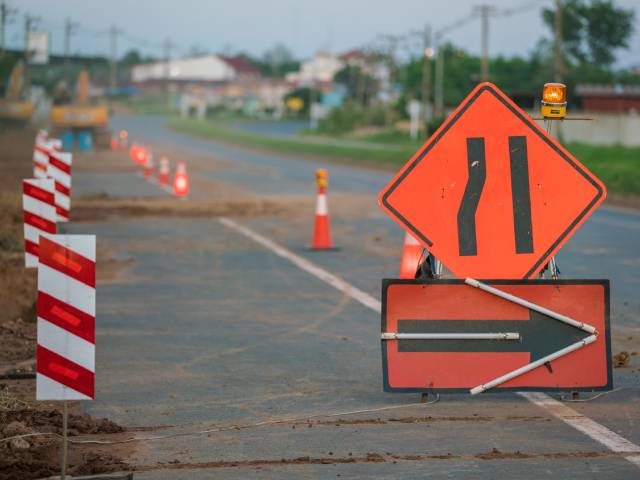Updated: Jul 1, 2024, 6:01 PM | By StateNewsJournal

Roadside construction is a necessary aspect of maintaining and improving our infrastructure, but it often leads to traffic disruptions that can cause frustration for motorists and pose safety risks. Efficient traffic management during these projects is crucial to minimize delays, prevent accidents, and ensure the safety of both workers and drivers. Let’s look at some effective strategies for managing traffic during roadside construction to help you and your crew maintain seamless traffic flow while protecting drivers.
Clear and strategically placed cones and barriers are fundamental to guiding drivers safely through construction zones. Set up cones in a straight line to delineate the work area, keeping them sufficiently close to prevent vehicles from slipping through.
Barriers, such as type II or type II barricades, allow you to demarcate zones and protect workers. However, for more robust barriers such as concrete, you’ll need to select a durable barrier lift that can withstand consistent lifting.
Use bold, reflective signs to alert drivers well in advance of the construction zone, providing ample time for them to reduce their speed and change lanes if necessary. Placement of signage should be strategic; position signs at regular intervals leading up to the work zone to keep motorists informed and prepared.
Each sign should convey specific instructions or warnings, such as “Reduce Speed,” “Merge Left,” or “Workers Ahead,” to guide drivers step-by-step through the altered route. Additionally, updating signs to reflect current conditions, such as changes in traffic patterns or lane closures, ensures that drivers receive the most accurate and relevant information.
Lane closures are undoubtedly the most effective strategy to manage traffic during roadside construction, and while they’re sometimes unavoidable, you should use them when possible. Clearly mark the beginning and end points of lane closures with bright, reflective signage, and set up the cones and barriers to guide drivers into the correct lanes.
Communication is key; make use of digital message boards to provide real-time updates on traffic conditions and potential delays. It’s the best way to keep your crew and drivers safe by keeping them away from the work zone entirely.
Trained flaggers play a vital role in directing traffic safely and efficiently around construction zones. These individuals must be well-versed in traffic control techniques and equipped with the necessary tools, such as high-visibility clothing, stop/slow paddles, and two-way radios for communication.
By positioning flaggers at critical points, they can actively manage the flow of vehicles, stopping or slowing traffic as needed to allow for safe passage around workers and equipment. Effective use of hand signals and clear communication with approaching drivers helps to minimize confusion and reduce the risk of accidents.
Effective coordination of timing is essential for seamless traffic management during roadside construction. By meticulously planning the sequence of construction activities and peak traffic volumes, you can minimize disruptions and maintain a steady traffic flow.
Begin by assessing the traffic patterns in the area, identifying high-traffic periods, and scheduling the most disruptive tasks during off-peak hours. This approach helps to avoid significant traffic buildup and reduces the inconvenience to drivers.
By prioritizing these strategies, you can turn potential traffic nightmares into manageable and even smooth experiences.
24World Media does not take any responsibility of the information you see on this page. The content this page contains is from independent third-party content provider. If you have any concerns regarding the content, please free to write us here: contact@24worldmedia.com


Industries Currently Relying on ....

5 Essential Tips on How To Hurri....

Mistakes To Avoid When You’re ....

The 5 Pieces of PPE Every Constr....

Lake Fishing: Tips and Tricks fo....

The Process Behind Custom Soleno....

Tips for Maintaining an Indoor P....

How To Know if Your Industrial F....